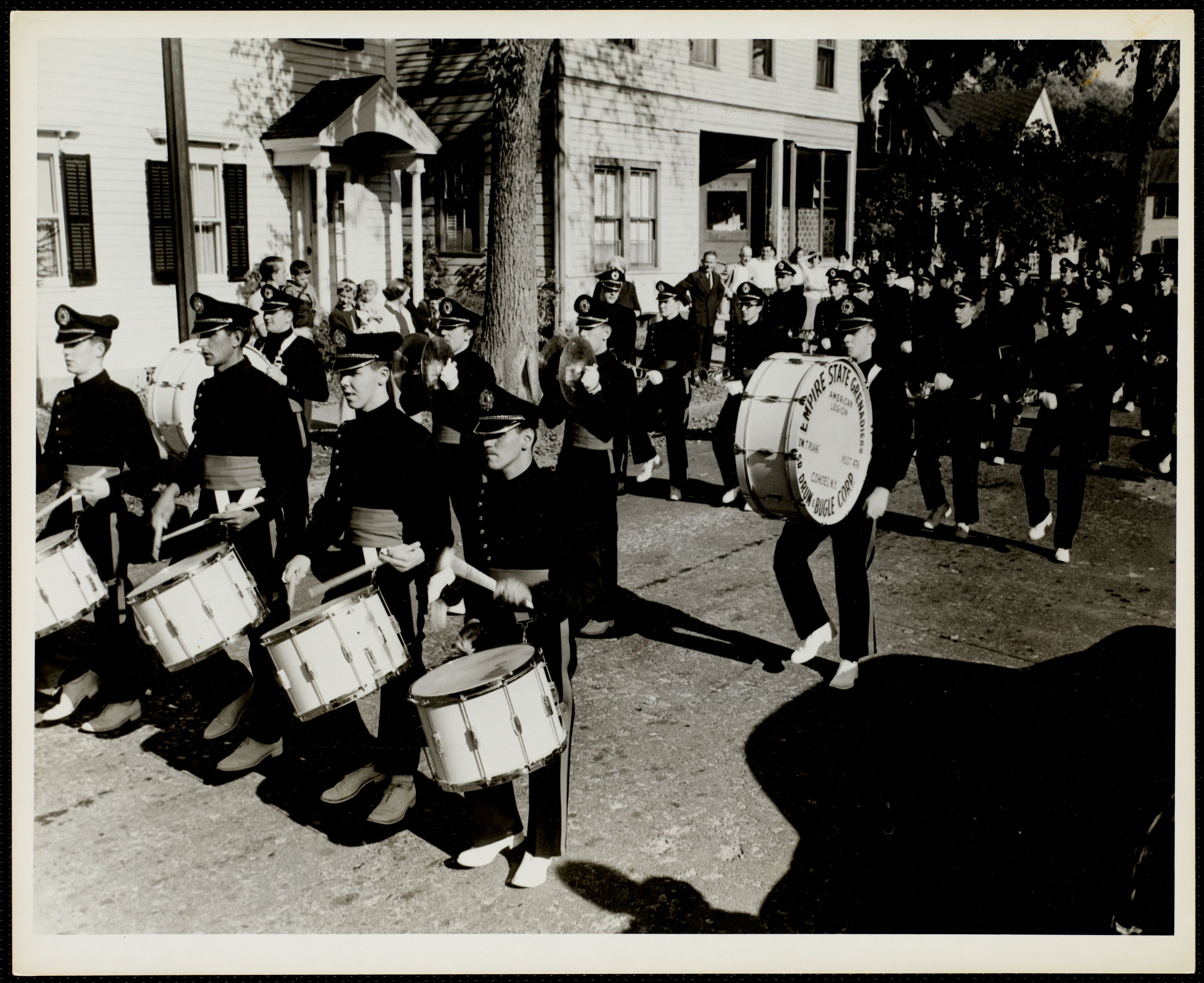March 4th is National Marching Music Day, and the library is here to figuratively strike up the band. Marches were written originally for the military to assist soldiers as they marched in drills, campaigns, and at war. In the beginning, they would have just been accompanied by a drum and perhaps also a fife (a type of flute). Visitors in downtown Boston will sometimes come across people dressed up in Colonial garb, and it isn't a rare occurrence for the drum and fife to make an appearance. This could lead a person to believe that this instrumentation is something relegated to the past, but not so! There are still drum and fife ensembles in the South. Perhaps the most famous musician who led one of these ensembles was Otha Turner,, opens a new window who has died but whose spirit lives on in Mississippi. If this has just whet your appetite, then I strongly recommend you next listen to the streamed sound recording "Traveling Through the Jungle: Fife and Drum Band Music from the Deep South, opens a new window".
Perhaps the best known march to most Americans is John Philip Sousa's "Stars and Stripes Forever." Sousa wrote 136 marches and was popularly known as the March King. He wrote the piece in 1896, and it was declared to be our National March in 1987. Sousa wrote lyrics to the march, though they are rarely sung. More people are probably familiar with the parody lyrics that start out with "O' be kind to your web-footed friends,
For a duck may be somebody's mother." Nobody knows the exact origin of these lyrics, but they became popular on college campuses in the 1930s. For comparison, here is an earlier parody of the march written by Nat M. Wills that tells the tale of a barroom brawl instead of a gentler song about water fowl.
Nat M. Wills — Parody on "The Stars and Stripes Forever (02:02), opens a new window
To hear the march as it should be played, listen to this rendition by the 1st Marine Division Band. They take it at a fast clip, with this track lasting only 3 minutes compared to the usual 4 minutes of other recordings.
1st Marine Division Band — Stars and Stripes Forever (03:29), opens a new window
If you've watched any high school or college football, you will have seen the school's marching band performing a half-time show. Marching bands have grown past merely being a supporting act for athletics and show off their own athletic and music skills in drum and bugle corps. The organizing body behind these ensembles, Drum Corp International, was founded in 1971, and today they sponsor competitions around the world. Boston is represented by the Boston Crusaders, opens a new window, a group that was founded in 1940 as the Most Precious Blood Crusaders. Locals will have an opportunity to see them compete in the East Coast Classic in Chestnut Hill on June 27, 2020. In the meantime, here's a short video of them performing in 2019.
Closely related to marching bands are stepping and drill teams. Stepping grew out of military drills and African foot dances, and it really got off the ground in the 1900s in the fraternities and sororities of historically black colleges. Today, the college groups continue their traditions and high schoolers have formed their own teams, too. Drill teams can be solely marching in formation, or a dance drill team that performs choreographed moves that are very precise in their movements. Drill teams originate with military organizations, and dance drill teams have their origins in 1930s Texas. While all of these groups may use music, they aren't likely to be using marching band music.
High school marching bands are a staple of parades all over our country. In Baltimore, Maryland, they have those as well as drum and dance teams. What I love about these groups is that both men and women, boys and girls of all ages, can join. All that is required is a dedication to the group to rehearse and attend the parades.
Whether you are able to relive your past (or present!) days as a marcher or are a happy spectator of marching events, we hope you enjoy the music.
Books
Scores
Mel Bay Presents Complete Music for Fife & Drum
Sound Recordings
Beethoven: Wind Music. Marches for Military Band, Wind Octet, Op. 103 & Wind Sextet, Op. 71
The Boston College Marching Band Presents Traditions



Add a comment to: March Forth!